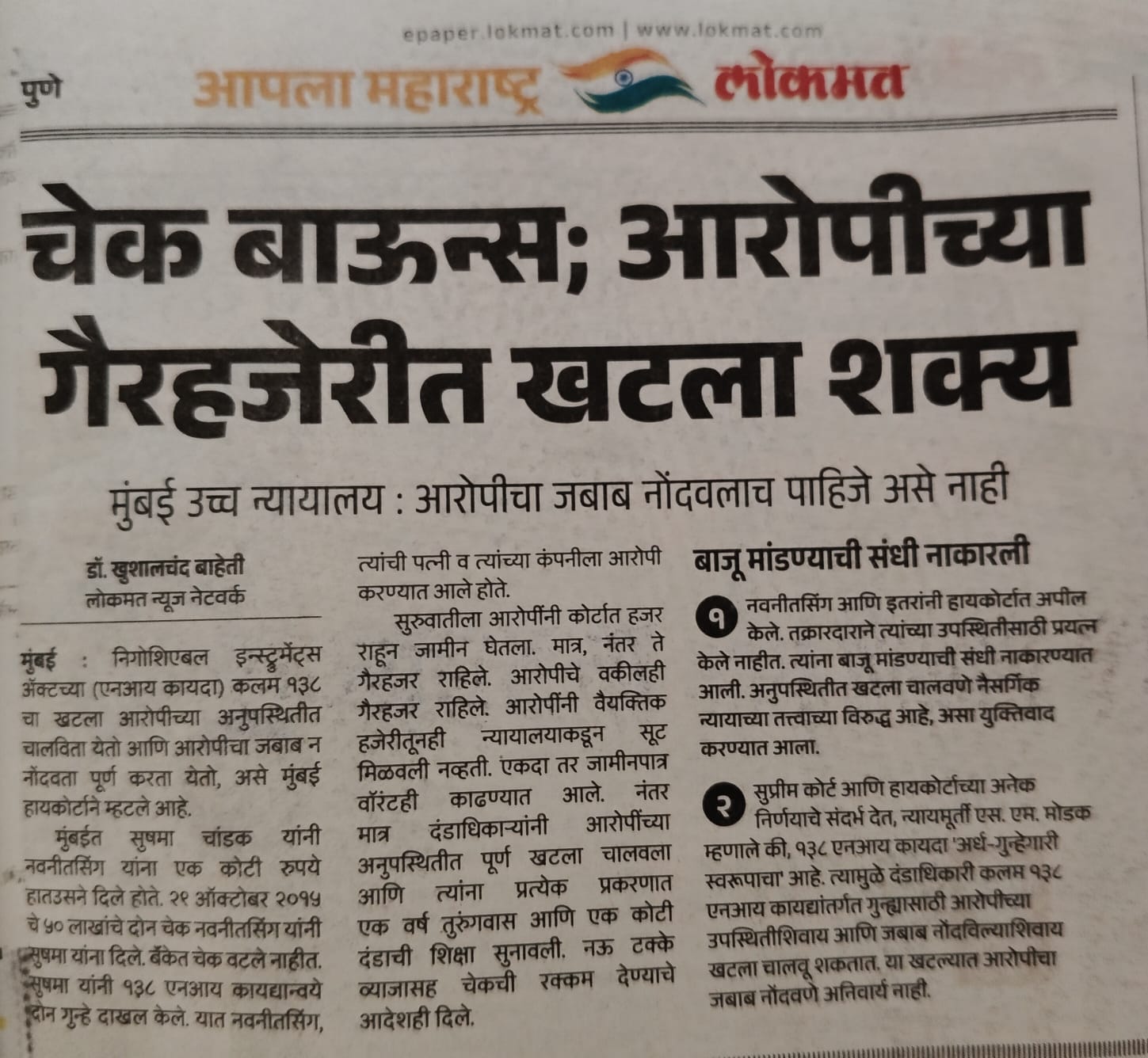
Explore the Bombay High Court’s latest ruling on cheque bounce cases under Section 138 of the Negotiable Instruments Act. Learn about the legal implications of an accused’s absence and how this verdict impacts judicial processes.
Understanding the Bombay High Court's verdict on the necessity of an accused's response in cheque bounce cases
Introduction:
Cheque bounce cases under Section 138 of the Negotiable Instruments Act, 1881, are considered serious offenses in the Indian legal system. Recently, the Bombay High Court issued a significant judgment regarding the accused's absence and their obligation to respond during court proceedings. This verdict sheds light on legal procedures and the rights of both complainants and the accused.
1. What is a Cheque Bounce Case?
- Cheque bounce is a punishable offense under Section 138 of the Negotiable Instruments Act, 1881.
- The law ensures credibility in financial transactions and penalizes defaulters.
2. Key Highlights of the Bombay High Court’s Verdict
- The court clarified that a case can proceed even if the accused is absent or has not filed a formal response.
- This decision streamlines judicial processes and ensures timely justice for the complainant.
3. Legal Implications of This Decision
- Faster resolution of cheque bounce cases.
- Striking a balance between the complainant's right to justice and the accused’s right to a fair trial.
4. Why is This Verdict Important?
- It reduces delays in legal proceedings.
- Establishes a precedent for other cheque bounce cases.
5. What Should You Do If Your Mobile Internet Speed Is Slow or Not Working?
- If your mobile internet is slow or not working, try these steps to fix the issue:
6. What Should You Do If Your Cheque Bounces?
- Send a legal notice to the defaulter immediately.
- File a complaint in court under Section 138.
- Seek expert legal advice to strengthen your case.
- Best advocates: in Pune, Mumbai.
If you’re dealing with a cheque bounce issue and need legal guidance, connect with our expert lawyers today. Contact Us. +91 8888419419
Recent Posts
-

-

Best Smart Phone Buying Guide: Avoiding Traps and Choosing Wisely
-

Reservation and Arakshan: Impact, Challenges, and the Road Ahead
-

Jio AirFiber Review: Slow Speed, Installation Issues & Customer Care Complaints
-

Kajaria Tiles in Pune – Best Dealers, Prices & Designs 2025
-

Cheque Bounce Case: Bombay High Court’s New Guidelines on Absentee Accused








